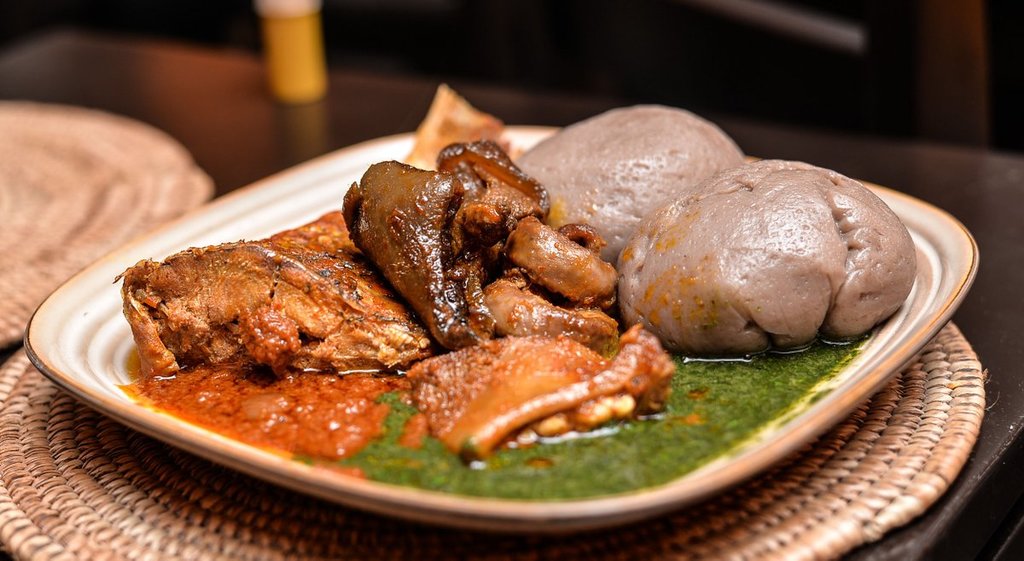Food News
10 Best Nigerian Foods That Will Blow Your Taste
Nigerians pride themselves on cooking some of the best food in west Africa, so it should be no surprise that there are a number of Nigerian restaurants across world offering some delicious dishes.
There’s such a range to explore – from traditional establishments that make you feel like you’ve just stepped into Lagos, Abuja, Kano, Port Harcourt, Enugu etc to high-end restaurants that experiment with Nigerian cuisine as an influence, rather than as a base.
Nigeria has one of the best cuisines in the world, which comprises dishes or food items developed by the numerous ethnic groups that make up the population. Nigerian cuisines, like those of other West African countries such as Ghana and the Benin Republic, contain spices and herbs alongside palm or groundnut oil to produce richly-flavored sauces and soups with an enticing aroma.
Here are 10 of the best Nigerian Foods in the capital.
They all have menus that provide a range of delicacies from the four corners of Nigeria and its many tribes.
Jollof Rice
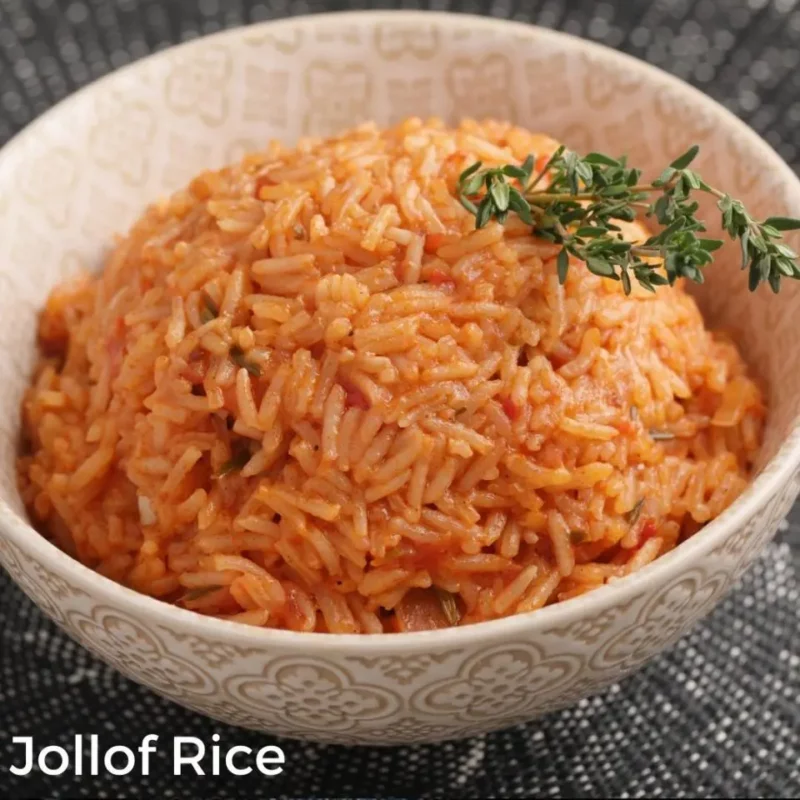
This is one of the most iconic foods in Nigeria and is eaten in every part of the country. You may wonder why it’s so highly rated, and it will shock you to know that it is simply rice prepared with tomato, onion, pepper, and some other spices.The secret lies with the spices!
It is sometimes served with vegetables, chicken or beef, and fried fish. This dish is popular far beyond the borders of Nigeria – it’s also a staple in Ghana and other West African nations.
Garri
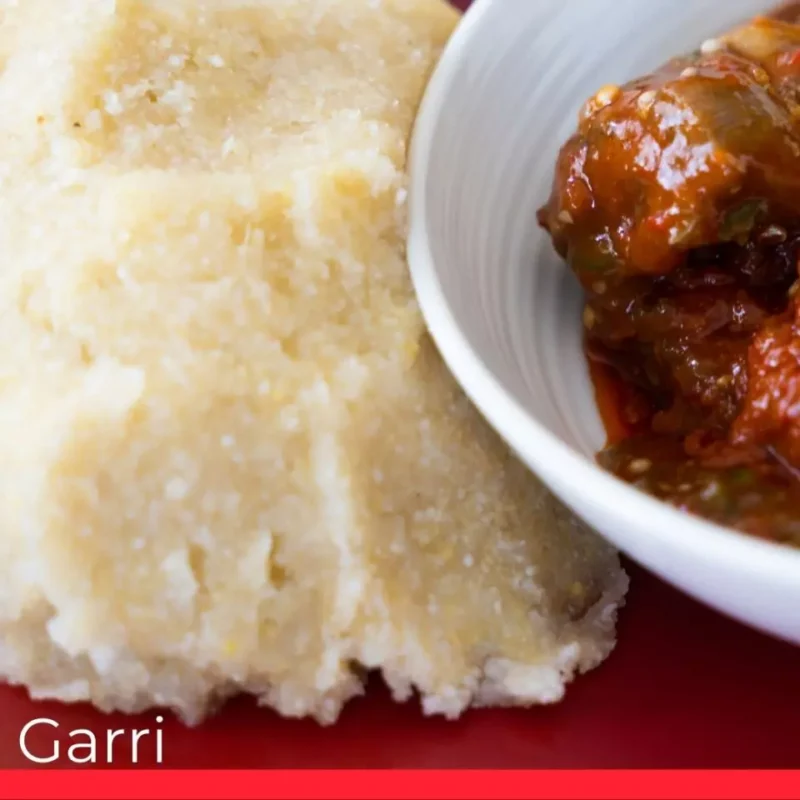
This is undoubtedly the most popular staple food eaten in Nigeria. It is consumed in the majority of households, irrespective of region or ethnicity.
Garri is prepared from cassava. This is first harvested, peeled, washed, and ground. It is then drained of water, some starch, and hydrocyanic acid before it is sieved and fried in a hot pan. The result of this process is called garri.
Garri can then be used to prepare Eba simply by adding hot water to the desired quantity of garri granules. Eba can be eaten with any Nigerian soup, such as Egusi soup, Okro soup, Banga soup, Afang soup, etc.
Pounded Yam
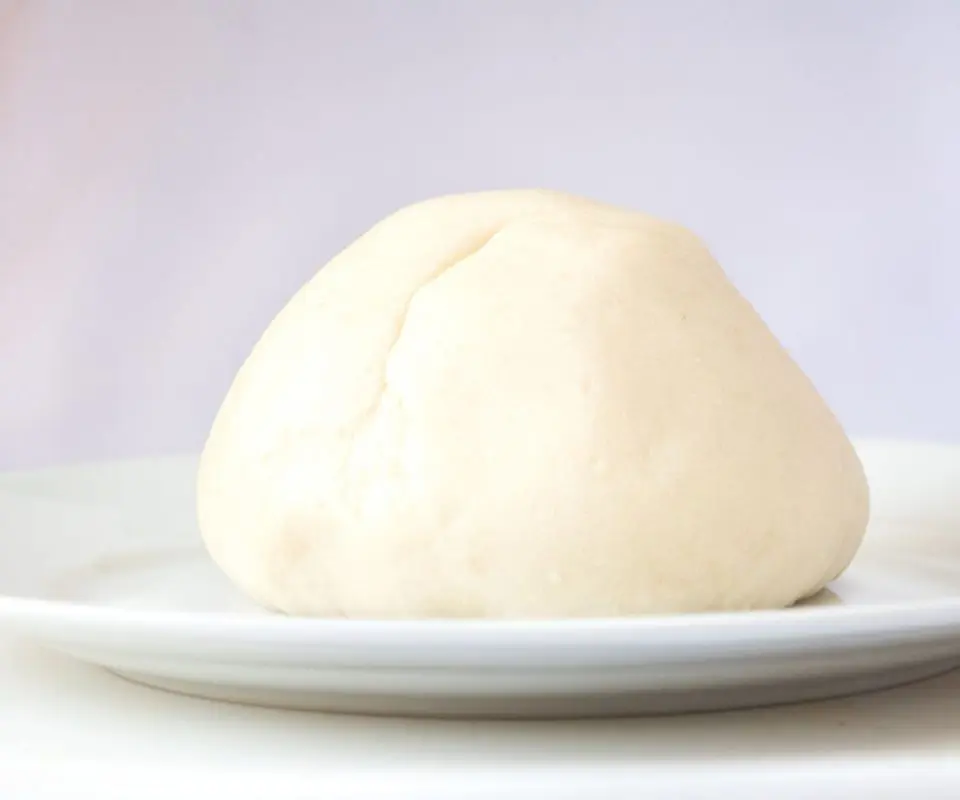
This is a very soft food served in several Nigerian homes and restaurants. It can be enjoyed with various soups such as Ogbono, Egusi, vegetable, and Afang soups.
The desired quantity of yam is peeled, washed thoroughly, and boiled to tenderness. It’s then pounded in a mortar until an pillowy soft mash is formed. The Yoruba people of Western Nigeria are especially fond of pounded yam, but it is also popular among the Igbo people of Eastern Nigeria.
Egusi Soup
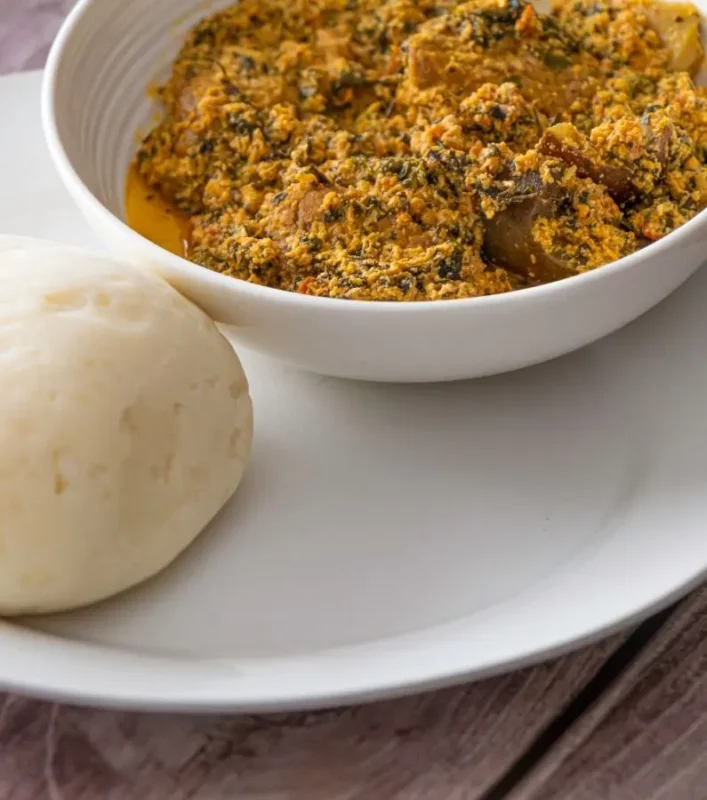
This is one of the most popular soups in Nigeria, especially during celebrations when it’s prepared in many households. Its unique texture and fluffiness are just two of the qualities that make this soup a special Nigerian delicacy.
Egusi soup is prepared from processed melon seeds, and ingredients such as stockfish, red oil, meat, vegetables, seafood, onions, and other condiments. The soup is served with pounded yam, garri, amala, etc.
Suya
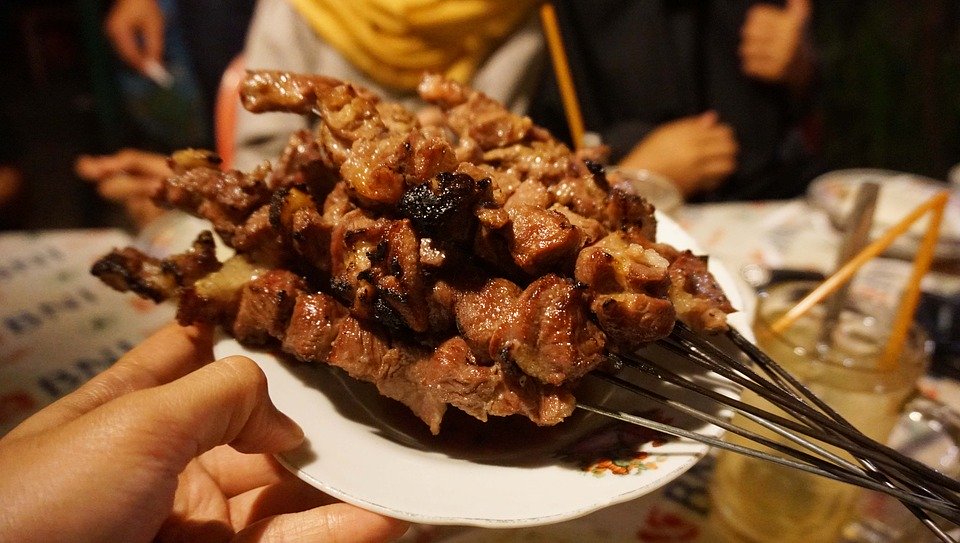
Suya is nicely cut beef that is spiced and grilled over an open flame. This delicacy is a specialty of the Hausa people of Northern Nigeria. A special kind of spice mix called Yaji is usually added to the meat before grilling, and it’s traditionally served with fresh cabbage, tomatoes, and onions.
You’ll often find it wrapped with old newspapers or aluminum foil and enjoyed during the evening.
Akara
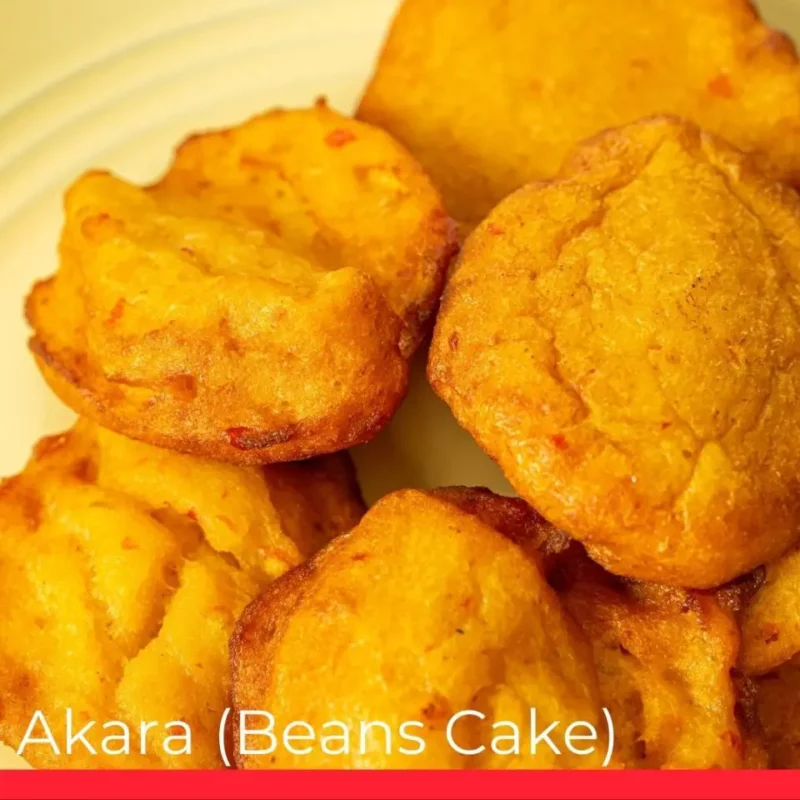
Known as Kosai in the country’s Northern region, Akara is a tasty bean cake deep-fried in palm or groundnut oil.
The beans are first soaked in water to remove the skin and then ground to a mash that is then deep-fried. Another kind of Akara can also be prepared by frying grated water yam.
Moi Moi
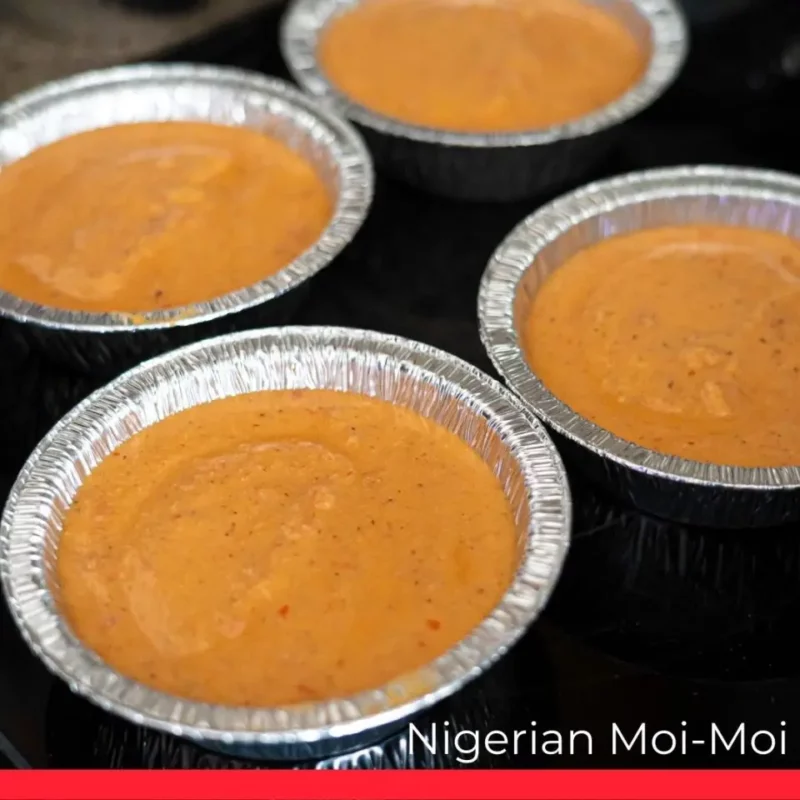
Moi Moi is one of Nigeria’s mouthwatering recipes that will blow your taste buds. Just like Akara, it is made from processed beans, but the difference is that it is boiled instead of fried.
Moi Moi can be garnished with fish, eggs, or crayfish. The essential ingredients are oil, tomatoes, pepper, salt, and spices. It can be eaten alone or with soaked garri, pap, or savory custard; choose whatever works for you.
Pepper Soup
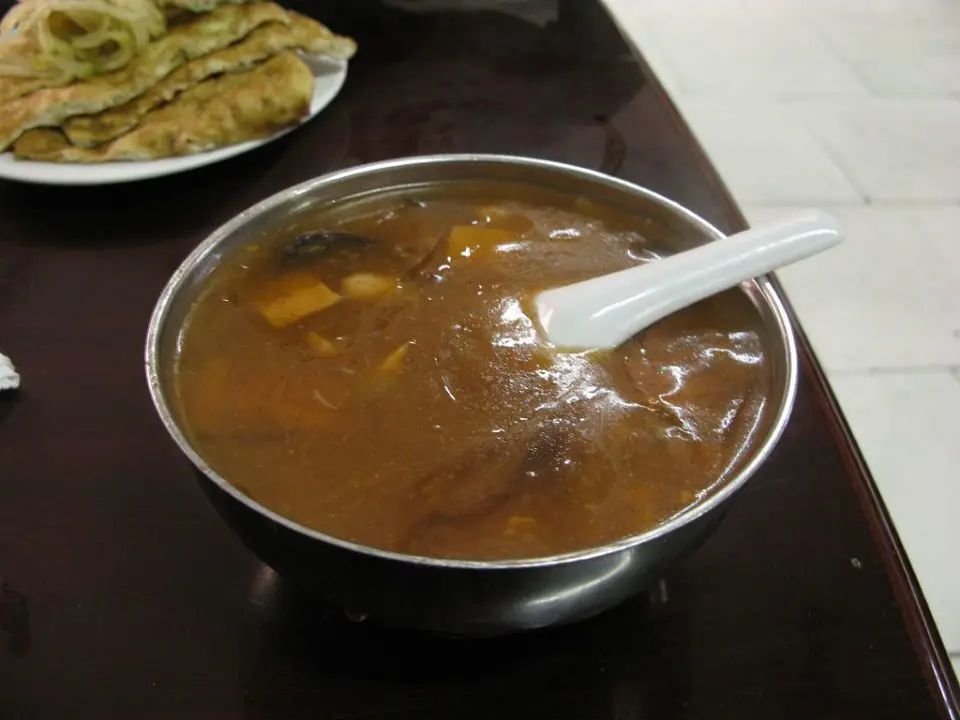
Pepper soup is also a very popular delicacy eaten in almost every part of the country. It’s usually packed with beef, chicken, mutton, or fresh fish and traditionally sold at bars, accompanied by a refreshing beer.
It is a delicious and nutritious soup due to the natural spices used to prepare it. The unforgettable aroma and the touch of pepper on the tongue will keep you coming back for more!
Nkwobi
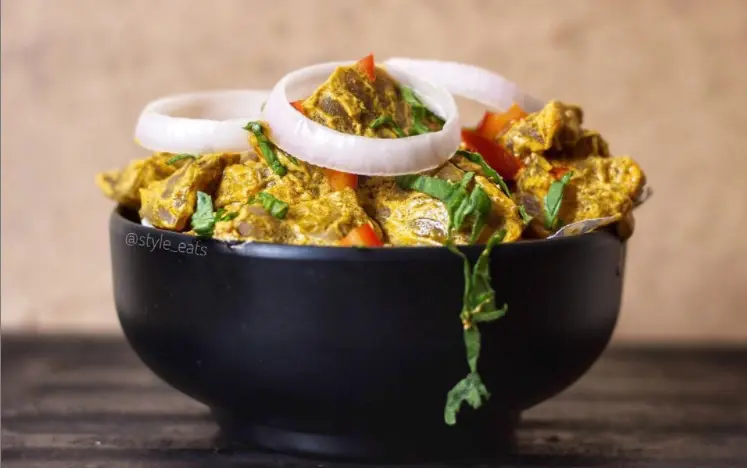
This is a traditional soup from the Igbo people of Eastern Nigeria. Nkwobi is prepared from the head and legs of a cow. It’s garnished with Utazi leaves and palm oil and is often enjoyed with a glass of palm wine, which is said to aid digestion.
Ewa Agoyin
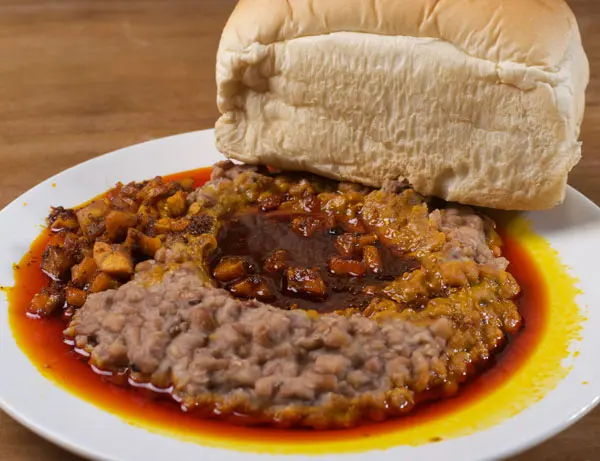
Ewa Agoyin is a delicacy that originated in the Benin Republic and is very popular among the Yoruba people of Western Nigeria.
It’s made with cooked mashed beans and a rich pepper sauce. The mouthwatering recipe typically includes onion, tomato, crayfish, and spices; a combination of tasty local ingredients will definitely leave you wanting more!
Abacha and Ugba
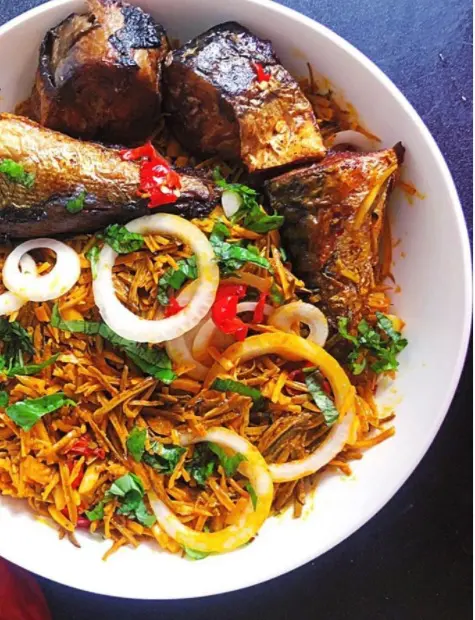
Although you’ll also see it called African salad, this is another much-loved dish that’s especially popular with the Igbo people of Eastern Nigeria.
Abacha is prepared from cassava, which is cooked, then grated before being sun-dried. The resulting flakes are used to prepare Abacha.
This delicious delicacy is made with sliced Ugba (oil bean seed) and fresh local vegetables. It is mainly served with fried fish and ponmo (cowskin).
Amala and Ewedu
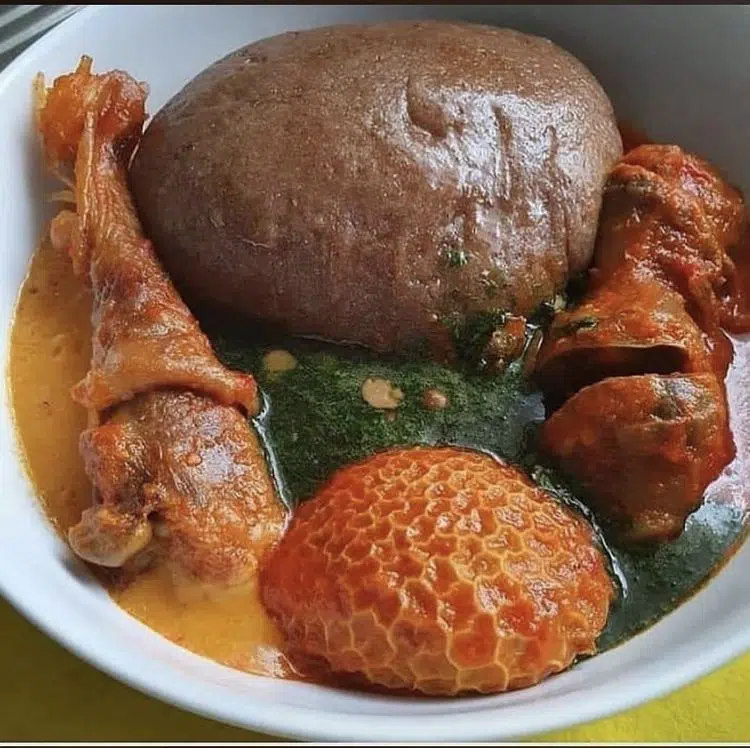
Ewedu is a delicious soup traditionally associated with the Yoruba people of Western Nigeria. It is, however, a very popular delicacy throughout the country.
Ewedu soup is made from the leaves of a Jute plant that is blended into a glutinous consistency (similar to okra soup). It’s typically garnished with meat and ponmo (cowskin) and best served with Amala. A tomato-pepper sauce is sometimes served with Ewedu to counteract the slight bitterness of the Jute plant leaves.
Beans and Plantain
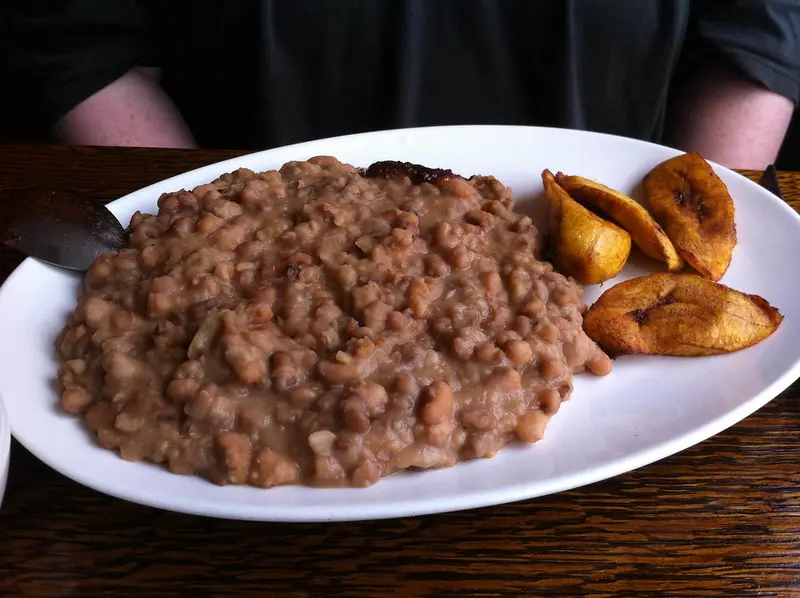
There is no way you should visit Nigeria and leave without tasting this dish – your trip would be incomplete! Nigeria is abundant in beans and plantains; therefore, preparing this delicious delicacy is easy.
This combination of the two basic ingredients is richly garnished with dried fish and other additions which enhance the recipe. The result? Simple, nourishing, and delicious.
Ogbono Soup
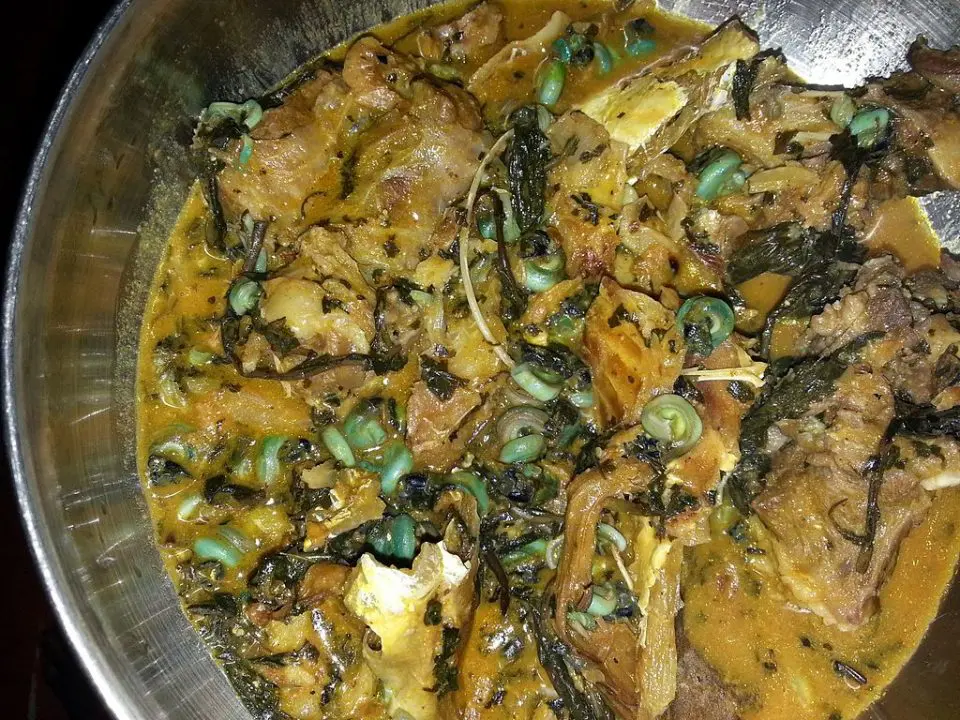
Ogbono soup is another iconic Nigerian soup that is said to be one of the easiest to prepare. It is made from the bush mango seed (a wild mango variant) with oil, meat, stockfish, dried fish, and other seasonings. Ogbono soup is customarily served with Eba, fufu, or pounded yam.
The slippery texture has earned it the nickname “draw soup”; a characteristic that makes it a fantastic partner for Eba or fufu balls.
Nigerian Fried Rice
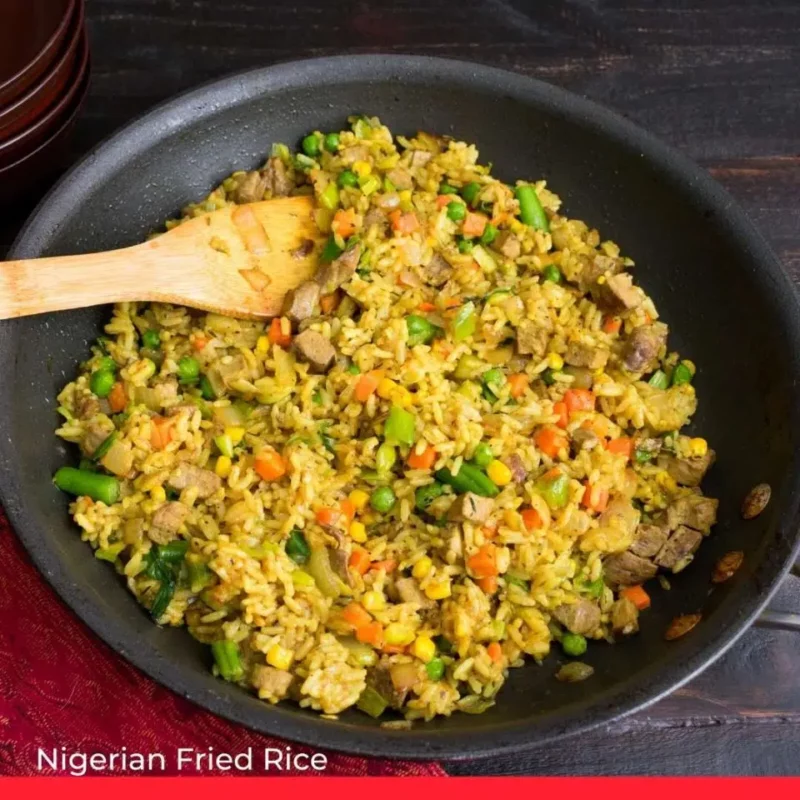
Nigerian fried rice is a delicious dish made with stir fry vegetables and parboiled long-grain rice marinated in chicken stock. It is known as the sibling of jollof rice, and they are often served side-by-side with fried or roasted chicken at owanbes (Nigerian wedding parties), Christmas gatherings, or Sunday outings.
Banga Soup
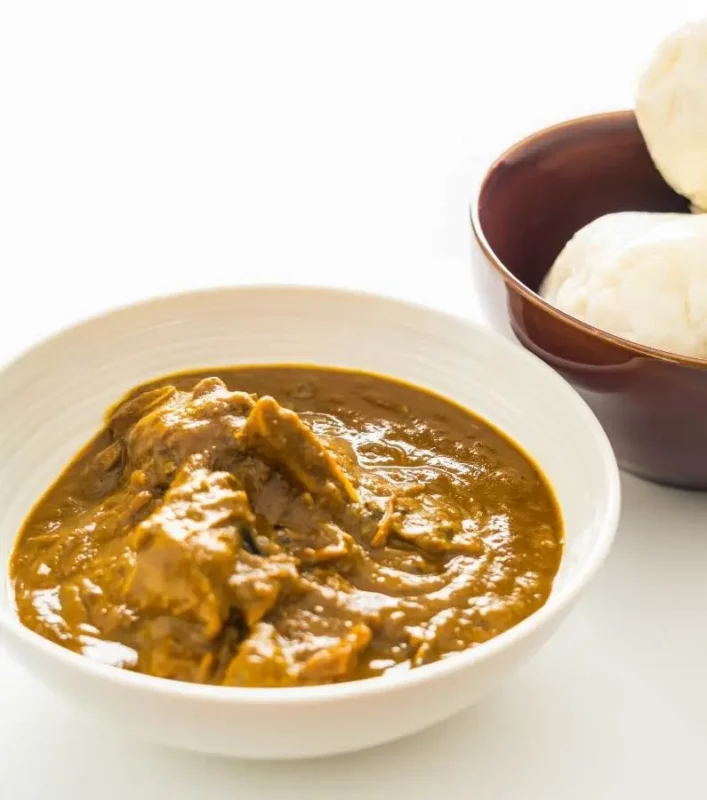
Also known as Ofe Akwu, this is another very popular soup in Nigeria, famous for the nutty flavor and typical in the southern region of the country.
This classic recipe is made from ripe palm fruit (palm kernel) paired with meats, fish (especially catfish), crayfish and other local ingredients that give it a unique aroma and taste. It is typically enjoyed with starch such as white rice.
Efo Riro
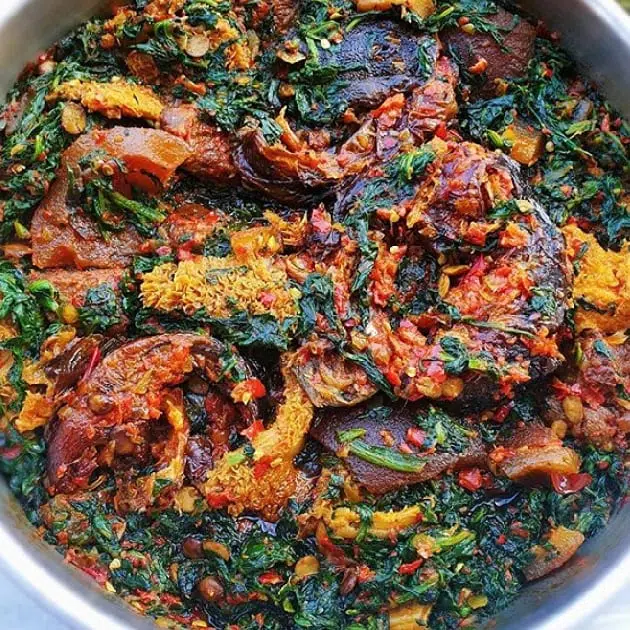
Efo riro is a typical Yoruba dish. It’s a quick and straightforward way to prepare and enjoy fresh, green, and leafy vegetables, such as spinach or pumpkin leaves, with beef, chicken, or smoked fish. Efo riro makes a great partner for African fufu such as Eba (garri), Semo, and Amala.
It is reputed to have health benefits because it is rich in iron and can help treat iron deficiency anemia.
Afang Soup
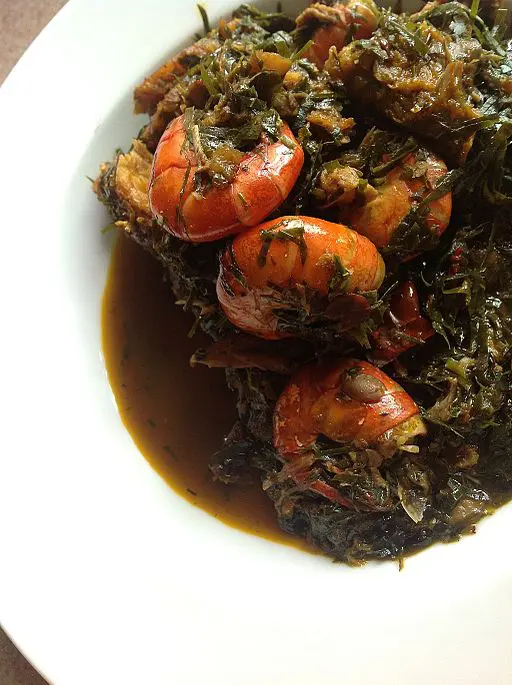
Afang soup is traditionally associated with the Efik tribe of Southern Nigeria. It comprises vegetables, meat, stockfish, and seafood such as prawns and periwinkles.
Leafy greens such as afang or okazi leaves are customarily used to prepare this delicious soup. Due to their toughness, they’re finely chopped before cooking. Afang soup is best served with Eba, fufu, or pounded yam.
Tuwo Shinkafa
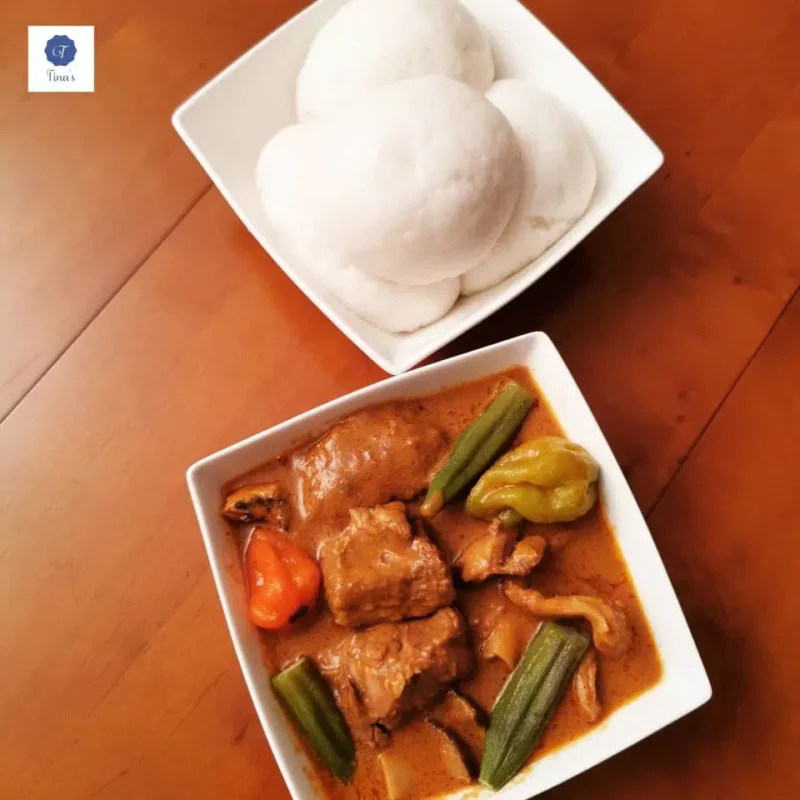
“Tuwo Shinkafa” means “mashed rice,” and this very popular dish is associated with the Hausa people of Northern Nigeria. It is prepared by boiling rice to tenderness and then mashing it until it has a semi-solid consistency.
It can be served at lunch or dinner, often as a partner for soups like Miyan Kuka, Miyan Kardashi, or even bean soup.
Okpa
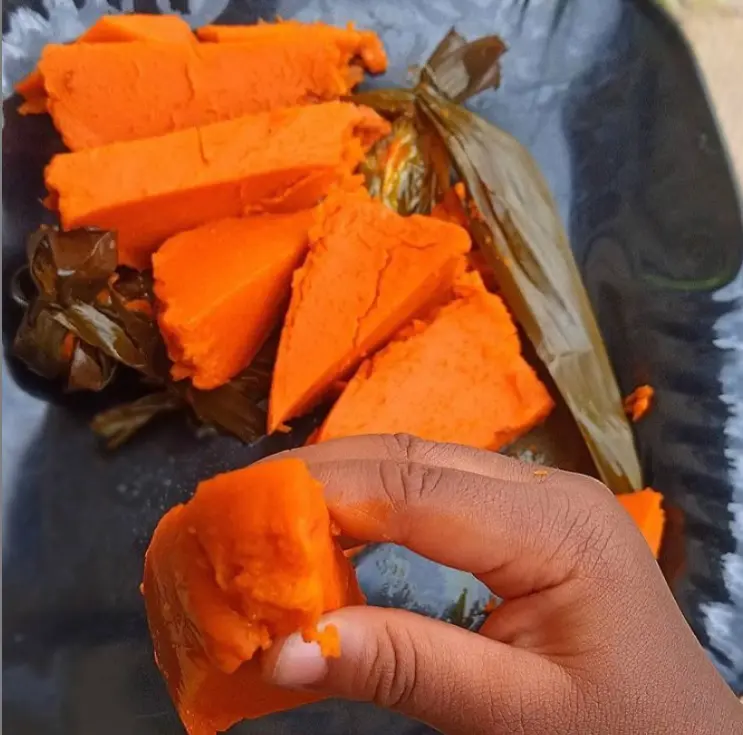
This filling delicacy is typically prepared in the eastern region of Nigeria, especially Enugu State. It is a kind of Moi Moi made from unique beans called Bambara nuts.
Okpa is prepared by grounding Bambara nuts into flour and mixing it with hot water and other ingredients, including crayfish, palm oil, fresh pepper, pumpkin vegetables (if desired), and salt. The dish is nutritious as well as substantial and delicious.
Boiled White Rice
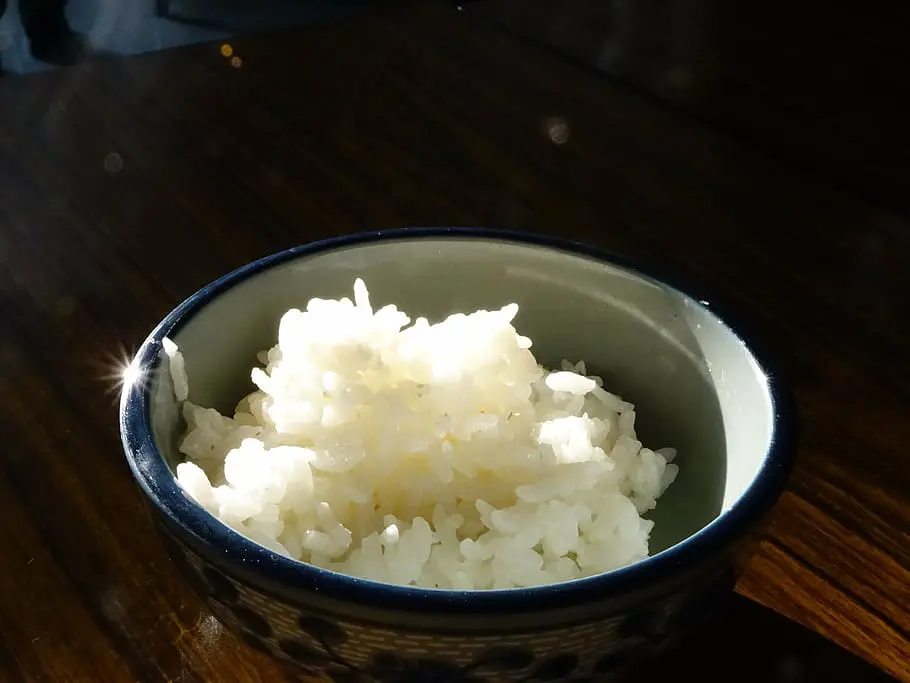
Most Nigerian families boil white rice to eat with homemade stew or soup richly. It can be served plain or as an accompaniment for fish or meat as the occasion demands. Some soups typically served with boiled white rice include Egusi soup, Banga soup, and vegetable soup.
In conclusion, we hope this quick tour of some of the most popular dishes has given you a glimpse into the richness and variety of the local cuisine, characterized by fresh, local ingredients and unique regional twists on Nigeria favorites.
If you ever visit Nigeria, make sure to sample some of these wonderful delicacies. You will be glad you did!
Did we leave any Nigerian dishes off our list? Let us know in the comments below and share your suggestions with our community.
We hope this article helped you learn. You may also want to see our guide on Naija Dishes and our expert picks for the most recipes in Nigeria.
If you liked this article, then please subscribe to our Instagram for video tutorials. You can also find us on Twitter and Facebook.
Our posts contain affiliate links. Sometimes, not always, we may make $$ when you make a purchase through these links. No Ads. Ever. Learn More

